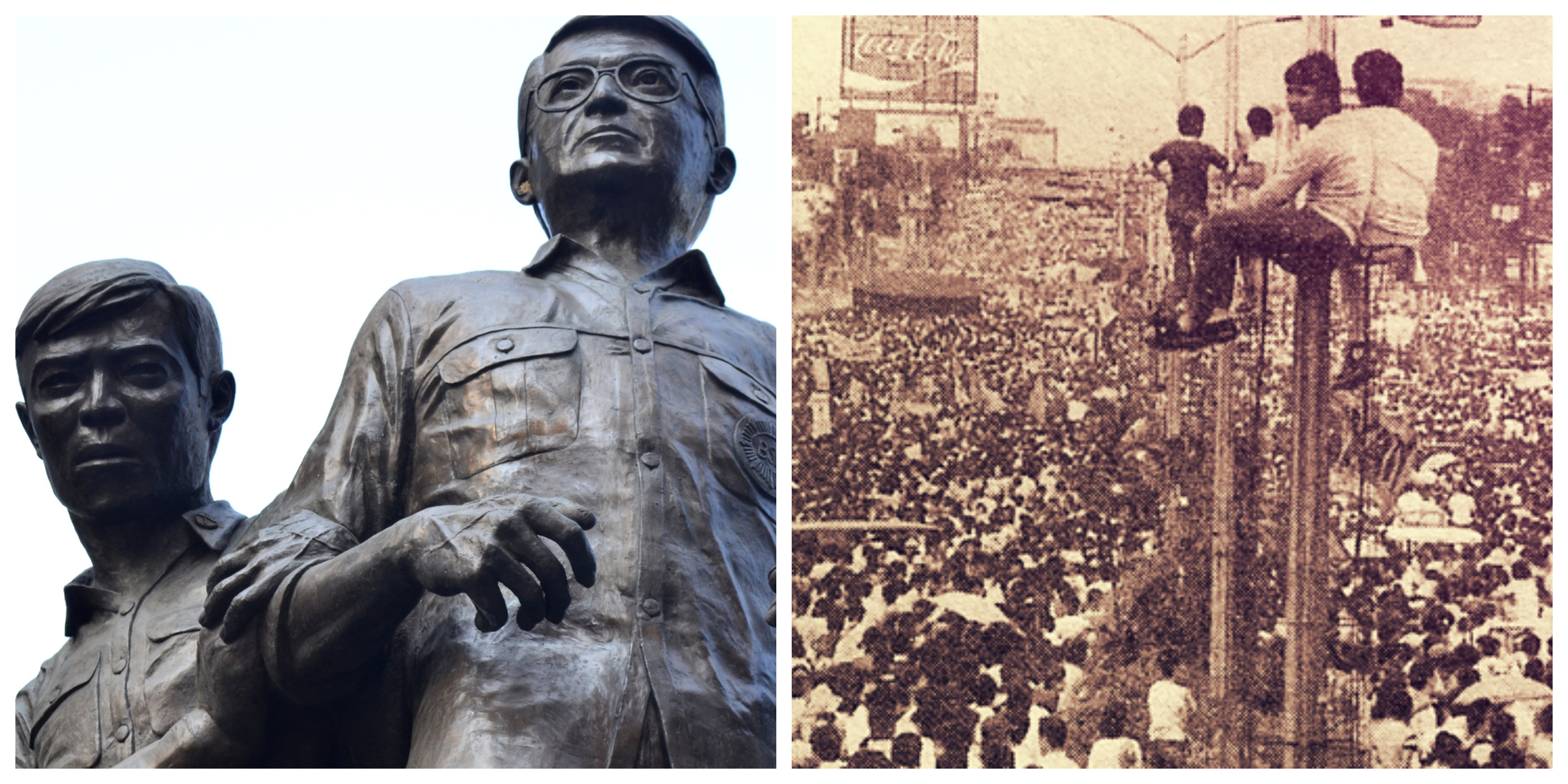While many Filipinos will be thrilled to take a day off from work or school on Monday for the commemoration of the EDSA People Power Revolution, there will be those who will observe the occasion with resentment and disdain.
The anniversary of the ousting of the late dictator Ferdinand Marcos is usually celebrated as the return of democracy in the Philippines, but to many the holiday is seen as a day of adulation for the political legacy of one powerful family — the Aquinos.
It is hard to fault them for drawing the connection, remembrance of the EDSA People Power is usually filled with tributes to the activism of the late Ninoy Aquino, speeches by his wife the late Cory Aquino and you will see images of the surviving Aquino family – including the woman everyone loves to hate, Kris – on television broadcasts or plastered all over social media.
To many Filipinos, paying homage to the day we as a people restored our democratic rights has become synonymous to genuflecting before the altar of the Aquino legacy.
But this view completely misses the point of remembering the EDSA People Power, the events of February 25, 1986 were much larger than the political brand of one family, or even several. In fact, its significance surpasses politics itself.
That day more than three decades ago was the culmination of nearly two decades of one-man rule, the reign of a tyrant who had consolidated his grip on power in the country that went beyond our state institutions but invaded the business sector also.
It was a time when student activists would consistently go missing, with some being found as lifeless corpses dumped in the hinterlands but many more never to resurface again. Their “crime” was to be vocal in their criticism of the regime, a democratic right afforded to global citizens around the world at that time.
It was a time when joining a protest was enough to label you a “communist” or at least a sympathizer of the rebel groups that fought against the government. Under these imagined suspicions, many activists would find themselves abducted by intelligence agents or downright extrajudicially-killed – justified under the excuse of “national security”.
It was also a time when the country, once among the most modern and economically developed in all of Asia, saw itself leapfrogged in economic development by its regional neighbours such as South Korea, Singapore and Malaysia among others. Technocratic policies were eschewed for cronyism, individuals loyal and friendly to the regime were favoured instead.
You see, the Marcos-era was not just bad for the Aquino family – who were forced into exile to the United States – they were bad for the Philippines as a whole. The tyranny and repression did not just target one family, it targeted the country entirely.
Which is why when an estimated four million people took to the streets in one of Metro Manila’s busiest thoroughfares, linked arms and recited prayers and successfully forced a change in government – it was not just a victory for the Aquino political dynasty, it was a victory for all of us.
Yes, Cory Aquino took over as President and presided over six-years of scant improvement to the social conditions of the country. No, the EDSA People Power did not reverse all the ill-effects that were caused by the Marcos regime as many are still felt by us today.
But the People Power revolt restored the soul of the country. What Marcos did to the Philippines was tantamount to a bullet piercing our skin and protruding our bones, the revolution was the removal of the bullet – but even in doing so, the gunshot wounds persist.
However, that does not make the removal of the bullet any less significant. As anyone knows, you must first take out the bullet dislodged inside your body for the wound to finally heal – that is a huge achievement in itself.
Hence, we should celebrate EDSA People Power because it marked a time when the nation nearly lost its soul, but the courage and patriotism of millions of Filipinos changed that and saved their country.
It was not an Aquino achievement, but rather that of the Filipino people ourselves. So regardless of your personal sentiments towards the “Yellows”, always remember that February 25th is the celebration of the red, white and blue, the three stars and the sun and the sacrifice of all those brave souls who flocked EDSA that fateful day.

